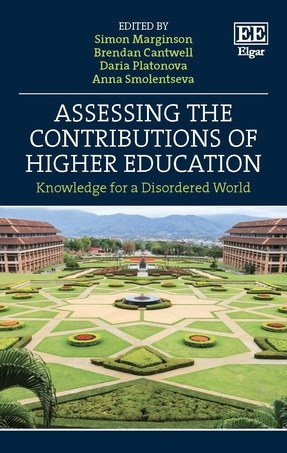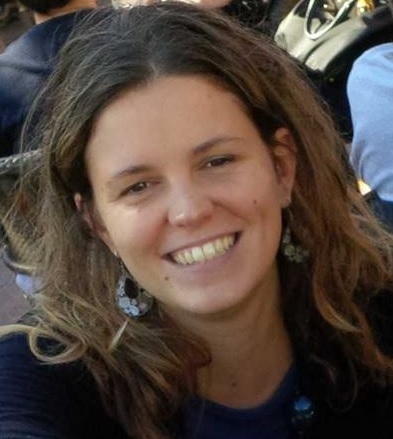The contributions of higher education 3: Contributions to global ecology and the common good
- Johanna Witte, Bavarian State Institute for Higher Education Research and Planning, Germany
- Rita Locatelli, Universita Cattolica del Sacro Cuore, Milan, Italy
Event Materials
This event is now archived and we are pleased to provide the following event media and assets, along with the original event overview.

In the third webinar in the CGHE series on the contributions of higher education, Johanna Witte brings us to what is arguably the most important work of all: higher education and the great civilizational challenge posed by accelerated climate change. Higher education and science have played a double role thus far: they have been engaged in the technological progress which has led to climate crisis, while at the same time they are now central to monitoring the problem and offering solutions. Conceptually, higher education’s role in relation to the climate crisis is best understood in terms of global common goods and the social embeddedness of higher education and science. However, higher education needs sufficient autonomy from political and economic structures, and sufficient public funding, to fulfil the common good role. In ecology there are manifold current and potential contributions of higher education including research, education, third mission roles and public debate. The chapter considers institutions’ roles as consumers and campus infrastructure; and discusses the roles of individual and collective actors including institutional leaders, academics, students, self-governing bodies, and governments.
Rita Locatelli presents the UNESCO-origin idea of education’s role in furthering the global common good, as a way to understand the potential contribution of the higher education sector to democracy. Higher education produces a broad range of collective goods, as well as the individualised goods that receive the main attention in neo-liberal policy settings. However, tendencies to the privatisation of provision and of funding, not universal but often pronounced, have weakened the association between the shared collective virtues of higher education and ‘public’ provision by states. The chapter reviews different meanings of ‘public’ and ‘public/private’ in higher education, and their policy use, noting that in Anglo-American countries, especially, a conceptual and practical impasse has been reached. The public/private dualism of economics blocks from view the full social value of higher education. A more useful notion is the communicative and universal public, the inclusive democratic relations embodied in ‘public opinion’ and ‘public sphere’. This public is not in a zero-sum relation with private good. The UNESCO concept of ‘common good’ takes that understanding further. It moves beyond questions of ownership or distribution to include the kind of social relations that are fostered. Common good is premised on participative and solidaristic communities. It is created in civil society as well as the state, and involves private as well as public actors, though state engagement is important in securing equity. When applied to higher education the notion of common good is a useful heuristic and objective that counters the attenuated notion of society in the market model. The chapter concludes with reflections on the implications of the Covid-19 pandemic in higher education, which highlights the problems of financing a collective approach to provision, but underlines the need for it.
About the CGHE webinar series on ‘Assessing the contributions of higher education’

- Assessing the contributions of higher education (2023), published by Edward Elgar can be downloaded free at: https://www.elgaronline.com/edcollbook-oa/book/9781035307173/9781035307173.xml
In this CGHE webinar series the authors of the newly released Edward Elgar book Assessing the contributions of higher education (edited by Simon Marginson, Brendan Cantwell, Daria Platonova and Anna Smolentseva) present ideas from their chapters and engage the participant audience on the key topic of how we can better understand – and improve – the contributions that higher education makes to societies across the world.
Despite the broad engagement of higher education institutions in most social sectors, limited thinking and hyper-individualistic approaches have dominated in discussions of their value to society. Advocating a more rigorous and comprehensive approach, Assessing the contributions of higher education discusses the broad range of contributions made by higher education and the many issues entailed in theorising, observing, measuring and evaluating those contributions.
Prepared by a group of leading international scholars, the chapters of Assessing the contributions of higher education investigate the multiple interconnections between higher education and society and the vast range of social, economic, political and cultural functions carried out by universities, colleges and institutes and their personnel. The benefits of higher education including employable graduates, new knowledge via research and scholarship, climate science and global connections, and the structuring of economic and social opportunities for whole populations, as well as work and advice for government at all levels. Higher education not only lifts earnings and augments careers, it also immerses students in knowledge, helps to shape them as people, and fosters productivity, democracy, tolerance and international understanding. International and interdisciplinary in scope, the book highlights the value added by higher education for persons, organisations, communities, cities, nations, and the world. It also focuses on inequalities in the distribution of that value, and finds that the tools for assessing higher education are neither adequate nor complete as yet. All of these themes and issues will be presented in the CGHE webinar series.
The underlying collaborative research project took place in 2018-2021 and was part funded by the Higher School of Economics in Moscow, Russia, prior to the Russia/Ukraine war. The research also overlaps with the investigation in CGHE’s research project on ‘The public good role of higher education in ten countries: a comparative approach’.
You need to register individually for each webinar in the series. You can register for the other webinars in the series here.
Booking
You will need to register to join this webinar. Please register here


